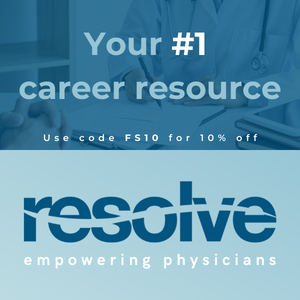(Join me and 15+ other speakers tomorrow for the virtual FREE Physician Freedom Summit March 4-5. Time to regain control of your life and medical practice. Register now! )
I am amazed at how few physicians take an adequate amount of vacation. This is one of the contributing factors to burnout. The more stressful the job, the more time off is needed to recover and rejuvenate. The average worker who puts in 40 hours a week, with every night and weekend off, can get away with only two weeks of annual vacation, but not so for most physicians.
When you work long days, take call at night and don’t have every weekend off, you can easily run to the end of your rope. For jobs like this, we need to take more vacation time to get enough rest to recharge our batteries. Recharging is one of the topics I cover in my coaching program and most of my clients do not do this well. We don’t put effort into recovery, because we don’t get paid to recover. But without adequate recovery, burnout is inevitable, and then we might not get paid at all.
I took 8-12 weeks of vacation every year while I was in practice. One year I took 17 weeks off. One of my vacations every summer was a three week motorhome trip with the family. The first week was winding down from the stress at work. The second week was recovery. The third week was where the money was since I was now fully recovered and ready to enjoy the week of vacation. By the time I got home, I was ready to work again and fully rejuvenated.
If your pattern is to never take more than one week of vacation at a time, you may never fully rejuvenate during your vacations. A general surgeon friend of mine never took more than a week of vacation until he was in his 60s. Then he noticed my vacation pattern and we had a discussion about it. He reluctantly took a two week vacation and then realized he should have been doing that all along. He had spent an entire career taking inadequate vacations.
But taking a long trip has some added complications you must deal with before you leave. I know people who enjoy taking six-month trips. My longest travel window has been two-months, one of which is just ending as I write this article. So here is how to prepare for your trip, so you are not worrying about things back home, and can truly enjoy your vacation.
Job coverage
Many people don’t like to leave on a vacation because they hate the pile of work they will find when they return. This is a self-imposed problem that is preventable.
First, take some extra time before you leave to be sure everything is caught up. Don’t leave anything dangling that will bother you on the trip or make you want to call the hospital or the office to check in. Since you are going on a long trip, and will have plenty of days to enjoy, take the first vacation day to get caught up at work and at home and pack without rushing.
Arrange for someone to cover for you and your patients while you are gone so nothing stacks up. They should be taking care of everything that comes up. You should NEVER call in and try to take care of patients from a distance. If you are doing that, you are not on vacation.
Then don’t schedule any patients on the day after you return. Have one day with nothing booked so you can do all the catching up needed: Sign papers, return emails, sign medical records. Don’t try to see patients and catch up at the same time. If you return on a Sunday, take Monday to just catch up. Then on Tuesday you can return to your regular schedule all caught up.
People who take one week off, leave work on Friday at 5pm and catch a plane three hours later, and return at midnight on the following Sunday and then go back to work as usual Monday morning, will not gain the benefits of a vacation. Cramming as much vacation time as they can into the allotted time off is not relaxing. They will depart rushed and with unfinished business. They will have a very miserable first day back to work. Afterward they will feel the vacation did not help them rejuvenate so they will not want to do it again and avoid that rotten day back to work.
The mail at work will likely pile up for you to take care of on the catch up day when you get back. It is the mail at home that needs to be covered.
Most of us have automated most of our bills, but there is still occasionally something important that arrives via snail mail.
We changed our mailbox to a giant locking version from Fort Knox Mailboxes. It can hold more than a months’ worth of mail under lock and key. We give someone the key (our son) and ask him to get the mail every week and look for anything important. If he finds something important, he can take a picture of it and text or email it to us so we can take care of it right away.
He can also pull out the junk mail and box up the rest and sent it to us wherever we are once a month.
House sitting
It is not good to leave your house empty for a long period. We have experienced flooding while we were gone and luckily it was caught quickly and dealt with by the person checking on the house.
You can either get a house sitter to live there in your absence or ask someone to go in to water the plants and look around once a week or so. When they are there they should flush each toilet and run some water in each sink. You need the P-traps to have water in them. If the water in the P-trap evaporates, then the sewer smell will come back into the house. Have them take the garbage out to the street the first week so the can will be empty.
Turn off the water to the clothes washer, turn down the thermostat and winterize outside if needed. Have some lamps on a timer to go on and off at night so it looks like someone is home.
Don’t let the house give away the fact you are gone. Packages on the front porch, newspapers piling up, and the lawn needing to be mowed are sure signs that the owner isn’t home. Make arrangements for all these things to be taken care of while you are gone.
Tell a trusted neighbor you are gone so they will keep an eye on the house. They will know that moving van pulled up to your garage is not supposed to be there.
Phone (both land line and cell)
You should not let your phone advertise that you are gone. Keep your answering machine message the same. You can forward your land line to your cell phone so you can get calls on the trip without anyone knowing you are gone.
If you have an answering machine on your land line, the person checking on the house should check the messages and forward any that need to be addressed.
If you travel to a vastly different time zone, you should turn off your cell phone ringer so you will not be awakened at a strange hour by a call. You can check the voice mail when you wake up.
Bills
Any bills you have not automated will need to be covered. You can pay enough extra before you leave to cover the upcoming charges or you can pay them over the phone or online while on your journey.
I have been on a trip and had my visa card canceled because I didn’t pay the bill that arrived in my mailbox the day after I left. Not having a working visa card during a trip can be crippling. It was my own fault for forgetting to pay it before I left.
I have some real estate investment mortgages that are paid to individuals. We leave postdated checks in sealed stamped and addressed envelopes for each monthly payment. The envelopes are put into bundles with the date on a sticky note in which the bundle is to be mail. Our son then mails them on the appropriate date.
Taxes
You don’t ever want to miss tax deadlines. I usually make travel arrangements such that we will be back home in time to get our taxes done by April 15th. Another alternative is to file an extension and do your taxes whenever you get home. With an extension, tax forms are due by October 15th but you must pay the estimated tax bill at the time you file the extension.
If you pay quarterly taxes, be sure to make appropriate arrangements so they are paid by the due dates. You can always pay them early or in one payment in the first quarter to make sure you don’t send them in late and get charged interest and penalties.
Up to date passport
Passports are required to be valid for six months beyond your return date when traveling internationally. Long before you leave on your trip, make sure your passport will comply with the six month rule so it is valid during your trip. When you are in the final year before your passport is due to expire, get a new one. To get a new passport you must send in your old passport before it expires. Start this process early to allow plenty of time for the new one to arrive before your vacation starts. This is especially crucial if you need to obtain a travel visa for any country you might visit as you might need to send them your passport ahead of time and you will want to send them your new updated passport.
Medications
Be sure you have enough of your prescription medications to last the entire trip. Don’t rely on getting refills during your travels, especially if you are leaving the country.
However, if you are staying in the states, a national chain pharmacy, such as Walmart, will refill your prescription at any store throughout the country.
Cars
Don’t let your cars sit idle for a long period of time. The batteries will go dead and the lubricated parts will dry out. Have someone drive or at least run the engine for 15 minutes once a week. I have come home to cars that don’t start when I forgot to arrange for this.
When my grandmother was in the nursing home recovering from a stroke. We would take her car on a trip once a month so it didn’t just sit and decay.
Make a list of all the things you do regularly so you won’t forget something that needs to be taken care of even though you are not home. If you tie up all the loose ends before you leave, you will have a worry free vacation. You will also have a more pleasant return, so you are willing to go on a long trip again in the future.
Vacations should be fun and enjoyable. If there is anything you don’t like about leaving on vacation, fix it so you don’t have that negative feeling hovering over your next trip.






I think many physicians don’t actually know their patients. Very few people , even “average workers” have a mere 40 hour work week with every night and weekend off . To say they only need two weeks annual vacation (if they can afford it !)far underestimates how hard and long they work and what stress they are under. Most likely they are spending their two week vacation painting their house or helping a friend build a garage.